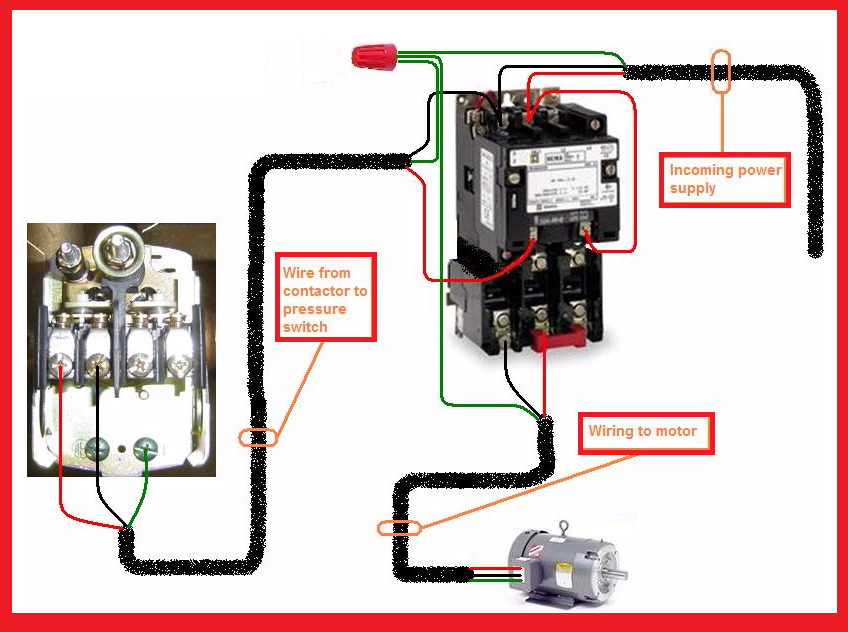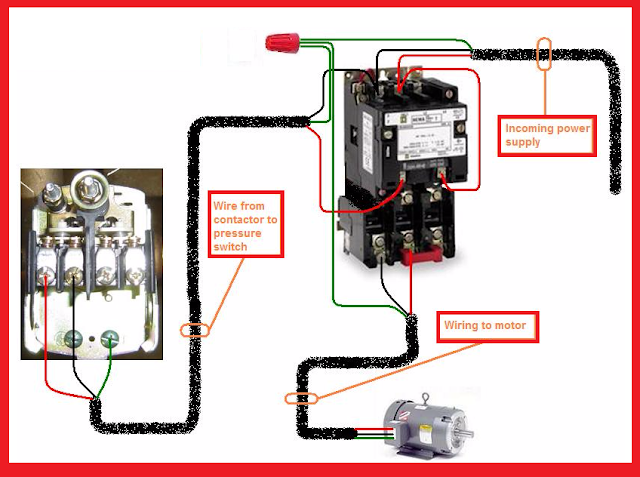Unlocking the Secrets of Your AC: The Air Conditioning Contactor Switch
Is your air conditioner whispering secrets you can't quite decipher? A gentle hum, a sudden click, the blessed rush of cool air – these are all orchestrated by a small but mighty component: the air conditioning contactor switch. This often-overlooked device plays a pivotal role in your home's cooling system, and understanding its function can unlock a world of efficient and effective climate control.
Imagine the contactor switch as the conductor of your AC orchestra. It acts as a bridge, controlling the flow of power to the compressor and other key components. Without this crucial connection, your AC would remain silent and still, a mere sculpture in the summer heat. This elegant mechanism ensures a safe and controlled start-up, protecting your system from surges and ensuring a smooth transition into cooling mode.
The history of the AC contactor switch is intertwined with the evolution of air conditioning itself. As cooling systems became more complex, the need for a reliable and robust switching mechanism became apparent. Early contactors were bulky and prone to wear, but advancements in materials and design have led to the compact and efficient devices we rely on today. This evolution reflects the constant pursuit of better climate control, a testament to human ingenuity in manipulating the very air we breathe.
But what happens when this essential component falters? A malfunctioning contactor can lead to a range of issues, from intermittent cooling to complete system failure. Recognizing the signs of a faulty switch, like a chattering sound or burnt contacts, is crucial for timely intervention and preventing further damage. Understanding the inner workings of this small but mighty switch empowers you to take control of your home's cooling destiny.
So, how does this magical mechanism actually work? The AC contactor switch utilizes an electromagnetic coil to close a set of contacts, completing the circuit and allowing electricity to flow to the compressor. When the thermostat signals for cooling, the coil is energized, pulling the contacts together and initiating the cooling cycle. This simple yet powerful action is the heart of your AC system, the silent conductor orchestrating the flow of cool air.
The AC contactor ensures safe operation of the air conditioning unit by preventing electrical overload. It also extends the lifespan of the compressor by providing a controlled start and stop mechanism. Finally, a functioning contactor contributes to energy efficiency by precisely regulating the cooling cycles.
When troubleshooting your AC, check if the contactor is receiving the correct voltage. Also, inspect the contacts for signs of burning or pitting. If the contactor is faulty, it needs to be replaced. For example, if your AC isn't turning on, a faulty contactor could be the culprit.
Advantages and Disadvantages of an Air Conditioning Contactor Switch
| Advantages | Disadvantages |
|---|---|
| Safety: Prevents electrical overloads | Wear and Tear: Contacts can degrade over time |
| Efficiency: Precise control of cooling cycles | Requires periodic inspection and maintenance |
| Longevity: Protects compressor from damage | Can be a point of failure in the AC system |
Best Practices:
1. Regularly inspect the contactor for signs of wear and tear.
2. Ensure the contactor is properly sized for your AC unit.
3. Have a qualified technician replace a faulty contactor.
4. Keep the area around the contactor clean and free of debris.
5. Monitor the contactor for any unusual noises or vibrations.
FAQ:
1. What does an air conditioning contactor switch do? It acts as a relay, controlling the flow of electricity to the AC compressor.
2. How do I know if my contactor is bad? Signs include chattering noises, burnt contacts, or a non-functioning AC unit.
3. Can I replace a contactor myself? It's best to hire a qualified HVAC technician for this task.
4. What is the lifespan of a contactor? It varies, but typically lasts several years.
5. How much does a contactor replacement cost? The cost varies depending on the unit and labor costs.
6. What causes a contactor to fail? Common causes include wear and tear, electrical surges, and overheating.
7. How can I prevent contactor problems? Regular maintenance and inspection can help prevent issues.
8. Are there different types of contactors? Yes, there are various types designed for different AC units.
Tips and Tricks: Regularly check your air filter to prevent strain on the AC system, including the contactor switch. Consider scheduling annual AC maintenance to ensure optimal performance and catch potential issues early.
In conclusion, the air conditioning contactor switch, while often unseen, is a vital component of your cooling system. Understanding its function, recognizing signs of malfunction, and implementing preventative measures can significantly extend the life of your AC unit and ensure a cool and comfortable home. By embracing a deeper understanding of this small but mighty device, you can empower yourself to take control of your home's climate and enjoy the sweet relief of cool air for years to come. Neglecting the contactor can lead to costly repairs and uncomfortable summers. Prioritizing its maintenance is an investment in your comfort and peace of mind. So, take a moment to appreciate the quiet hum of your AC, and remember the unsung hero working diligently behind the scenes – the air conditioning contactor switch.
A glimpse into st pete police dispatches understanding active calls
Romantic good mornings igniting connection with the perfect greeting
Level up your gamertag the ultimate guide to using symbols













